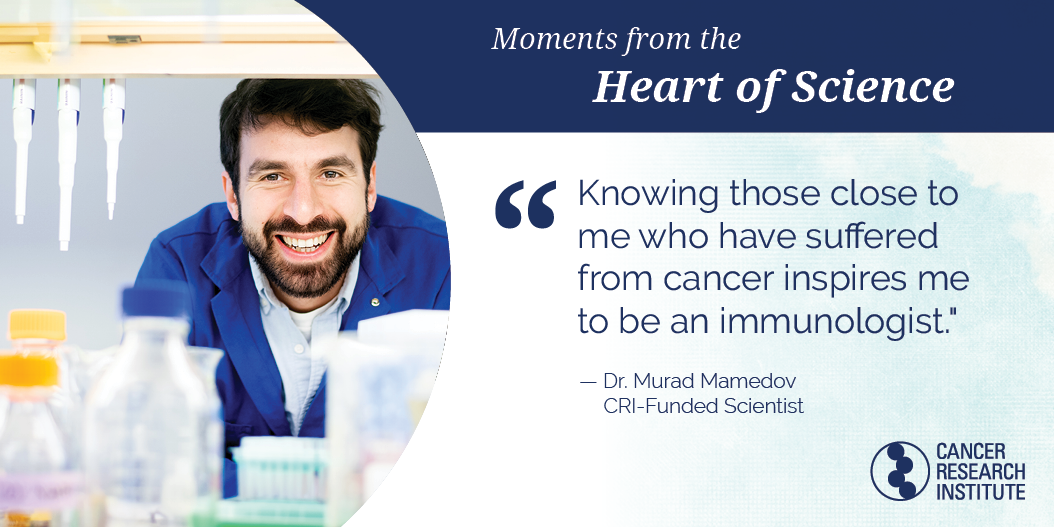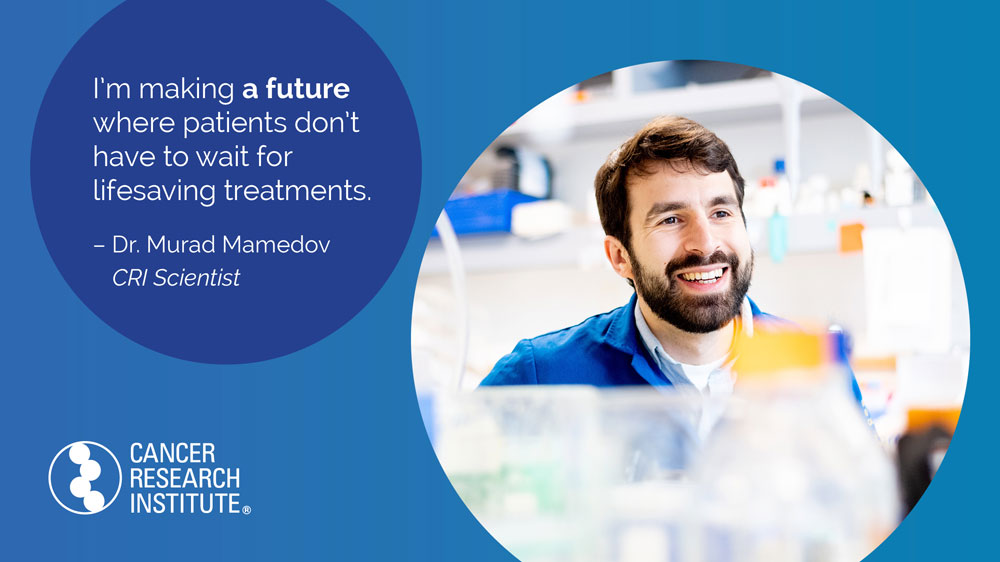T cells are one of our most powerful immune cells, and in recent years, scientists have developed ways to unleash their full potential against cancer. One way to do this involves taking conventional T cells from patients and then enhancing their anti-cancer activity before re-infusing them back into patients, where they can seek out and eliminate tumors. However, these T cells only work in the patients they were taken from, so this process has to be repeated for each individual, which makes it costly in terms of time and resources. Fortunately, there is another type of T cell—called gamma-delta T cells—that may be able to overcome this limitation.
However, there is still much to learn about these gamma-delta T cells in order to maximize their potential in immunotherapy. Therefore, Dr. Mamedov is exploring how these unique T cells might potentially be used to create an off-the-shelf treatment that doesn’t have to be personalized for each patient. Dr. Mamedov’s first aim is to uncover the blueprint behind gamma-delta T cells’ ability to secrete various molecules that are central to their cancer-fighting ability. Then, he plans to define the specific targets that gamma-delta T cells use to recognize cancer cells. Overall, his project will address the need for better fundamental knowledge about these understudied cells and move us closer to using them to help cancer patients.


Projects and Grants
Mapping Gamma Delta T Cell Genetic Networks and Cancer Ligands
University of California, San Francisco | All Cancers | 2019 | Alexander Marson, M.D., Ph.D.
Let's spread the word about Immunotherapy! Click to share this page with your community.